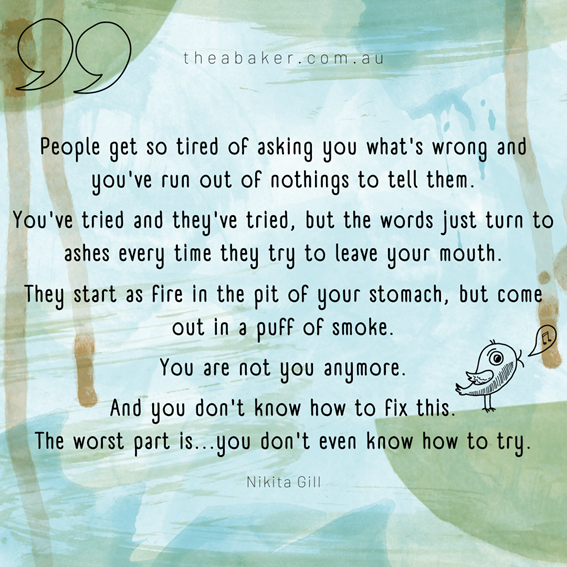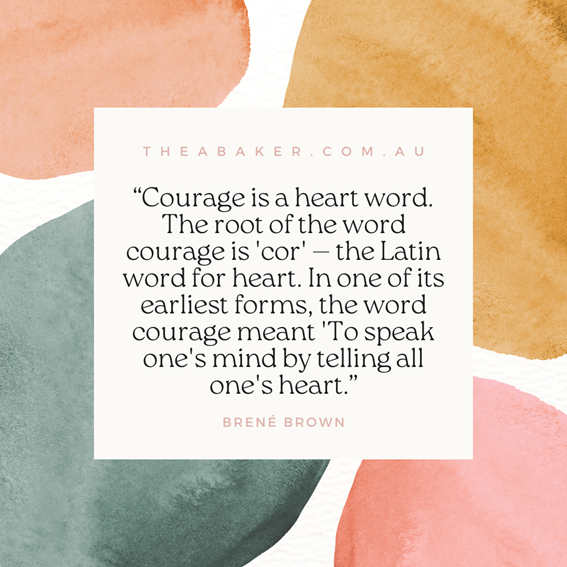Finding your voice
Finding your voice
If you’ve been following Thea Baker Wellbeing for any length of time, you’ll know we spend a lot of time with clients who have experienced trauma in one form or another. Often these brave humans have experienced multiple layers of messy and deeply painful traumatic experiences, often at the hands of significant caregivers – parents, grandparents, teachers, partners – the very people that they should be able to trust over any other. It’s what we call ‘complex trauma’ or C-PTSD.
Healing from C-PTSD is often a long, slow process, in part because it requires feeling safe enough in the therapy space to do the ‘work’ of healing. But to even start that process, requires being able to talk about the events that has brought someone there in the first place. One of the problematic by-products of experiencing trauma is shame, and shame encourages us to be silent. Such a dilemma. Trauma leads to shame and shame leads to silence…which makes speaking up (and by association, therapy) and healing really hard.

This week, I want to revisit the concepts around the ‘voicelessness’ that people who have experienced this kind of trauma have to navigate in addition to all of the other ‘symptoms’ of trauma: nightmares, flashbacks, not feeling present / feeling spaced-out (dissociated), hypervigilance, emotional dysregulation, suicidal thoughts etc. Taking away a person’s ability to ask for their needs to be met, speak up when boundaries have been over-stepped or being able to share their story is for many people the worst part of their ongoing trauma recovery because these are the foundational building-blocks that we need in order to create healthy relationships. It’s a fundamental part of being human and it’s what allows us to connect to others. When we lose our ability to connect to others healing becomes even more difficult.
These are some of my favourite ways to encourage clients to find their voice again – please know that it’s not where I start in the process of healing with someone who has experienced trauma, and this absolutely isn’t a step-by-step approach that I’m putting down here, these are just some of the creative ways that I like to help people connect to their story.
- Hum songs that you know and enjoy, noticing the vibrations through your throat – you can even put your fingers lightly on your throat to feel them through your fingers.
- Whistle (or learn to whistle).
- Scream as loudly as you can into a pillow, in a swimming pool or on top of a hill or mountain (obviously requires a swimming pool / hill or mountain, preferably with no one else around to hear you!)
- Drive (safely, obviously) down the freeway with your windows down, music of your choice up nice and loud and sign at the top of your lungs.
- Take long slow inhale breaths and as you exhale make audible sighing or moaning sounds.
- Write your story down for your eyes only – in a journal if you want to keep it or if you don’t you can write it on pieces of paper, when you’re ready you can scrunch up every piece of paper very intentionally into small hard balls, noticing what it feels like to do so.
- Use your phone to record you telling parts of your trauma story out loud. Or, if there’s something you want to say to someone but can’t find the words to, try practicing this way first. You aren’t recording it for anyone but you. You don’t need to replay it. When you are ready you can delete it.
- There may be support groups, peer groups or awareness programmes that actively encourage the sharing of your story to help with others navigating their own pain.

Trauma is messy. Complex trauma even more so. Psychotherapy is an active process and it starts with the relationship you have with your therapist, so finding one that you feel safe and connected to is the first step to you finding your voice.
We have a team of therapists at Thea Baker Wellbeing who are all trained to support you in exploring trauma – please reach out to us at: hello@theabaker.com.au / 03 9077 8194.
